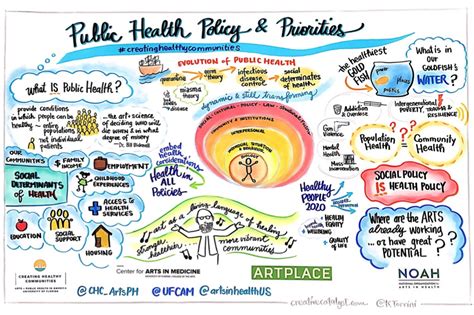Public health plays a critical role in society, impacting the well-being of individuals and communities on a global scale. From addressing infectious diseases to promoting healthy behaviors, the field of public health encompasses a wide range of crucial functions aimed at improving overall health outcomes. In this blog post, we will delve into the multifaceted realm of public health, exploring its various components and the significant impact it has on population health. From understanding the fundamental role of public health to delving into epidemiology and disease control, we will uncover the essential aspects of this vital field. Additionally, we will examine the importance of health education, preventive measures, and addressing health disparities, as well as the collaborative efforts required to advance public health policy and legislation. By utilizing data and research, empowering individuals, and inspiring behavioral change, we can work towards healing the masses and promoting a healthier future for all. Join us on this enlightening journey as we delve into the field of public health and its integral role in shaping a healthier society.
Table of Contents
Understanding the Role of Public Health
Public health plays a crucial role in promoting and protecting the health of communities. It encompasses a wide range of activities aimed at preventing diseases, promoting healthy behaviors, and addressing the underlying social and environmental determinants of health. Public health professionals work to improve the overall well-being of society and minimize the impact of health threats.
One of the key aspects of public health is disease prevention and control. This involves monitoring the spread of infectious diseases, implementing vaccination programs, and promoting population-wide health interventions. Public health officials also work to mitigate environmental hazards and improve access to clean water and sanitation, which are essential for preventing the spread of diseases.
Health promotion and disease prevention are at the core of public health practice. This involves educating individuals and communities about healthy lifestyle choices, advocating for policies that support health, and providing resources to help people make informed decisions about their well-being.
Ultimately, public health is about striving for equity and justice in health. It involves addressing health disparities, understanding the impact of social determinants of health, and advocating for policies that ensure everyone has the opportunity to lead a healthy life.
Identifying Public Health Issues and Concerns
Identifying public health issues and concerns is crucial in order to effectively address and improve the overall health of a population. It involves the process of recognizing the various factors that can impact the health and well-being of individuals and communities, as well as understanding the specific challenges and needs that they face.
By identifying public health issues and concerns, healthcare professionals and policymakers can develop targeted strategies and interventions to mitigate their impact and promote better health outcomes. This can involve conducting thorough research, data analysis, and community assessments to gain a comprehensive understanding of the prevalent health issues within a population.
Moreover, identifying public health issues and concerns also involves listening to the voices of the community and engaging in open communication to determine their priorities and perceptions of health. This participatory approach can provide valuable insights and perspectives that are essential in developing relevant and effective public health initiatives.
Ultimately, the process of identifying public health issues and concerns serves as the foundation for creating targeted interventions and policies that can address the root causes of health disparities and promote the well-being of all individuals, regardless of their background or circumstances.
Exploring Epidemiology and Disease Control
Epidemiology plays a crucial role in public health, helping to identify patterns and causes of diseases and to develop strategies for disease control and prevention. The study of epidemiology involves the investigation of the distribution and determinants of health and disease in populations, and the application of this knowledge to improve health outcomes.
One of the key aspects of epidemiology is the surveillance of diseases, which involves monitoring the occurrence of diseases over time. This allows public health professionals to detect outbreaks, identify risk factors, and evaluate the effectiveness of interventions.
Another important component of epidemiology is the investigation of outbreaks and the control of infectious diseases. This involves conducting field investigations to determine the source of the outbreak, implementing control measures to prevent further spread, and communicating findings to the public and other stakeholders.
Overall, epidemiology is essential for understanding the spread of diseases and for developing effective strategies for disease control and prevention. By exploring epidemiology and disease control, public health professionals can work towards improving the health of populations and reducing the burden of infectious diseases.
Promoting Health Education and Awareness
One of the key components of improving public health is promoting health education and raising awareness about various health issues. This involves providing individuals and communities with the information and tools they need to make informed decisions about their health and well-being. Whether it’s through schools, community initiatives, or digital campaigns, promoting health education and awareness is crucial for empowering people to take control of their own health.
By offering educational programs on topics such as nutrition, exercise, disease prevention, and mental health, individuals can gain a better understanding of how their lifestyle choices impact their overall well-being. These programs can also work to dispel myths and misconceptions about health, and provide evidence-based information that empowers people to make positive changes in their lives.
In addition to education, raising awareness about public health issues is essential for mobilizing communities and encouraging collective action. Through public service announcements, social media campaigns, and community events, it is possible to bring attention to important health concerns and advocate for necessary changes in policies and practices. By promoting awareness, individuals are also more likely to seek out available resources and support when facing health challenges.
Promoting health education and awareness is not only about providing information, but also about inspiring behavioral change. By approaching individuals with empathy and understanding, it becomes possible to motivate them to adopt healthier habits and take proactive steps towards improving their overall well-being. Therefore, continuing efforts in this area are vital for creating a society that prioritizes health and wellness for all.
Implementing Preventive Measures and Interventions
When it comes to public health, one of the most important aspects is implementing preventive measures and interventions. This involves taking action to prevent the spread of diseases and promote overall health and well-being within a community.
Preventive measures can include a wide range of strategies, such as vaccination programs, sanitation initiatives, and regular health screenings. These measures are designed to stop the spread of illness before it occurs, ultimately reducing the overall disease burden.
In addition to preventive measures, interventions are also crucial in public health. This involves taking action to address existing health issues and promote positive health outcomes. Interventions can include providing access to healthcare services, implementing education and awareness campaigns, and creating policies and regulations to support healthy behaviors.
By implementing both preventive measures and interventions, public health professionals can work to create healthier communities and populations, ultimately improving overall quality of life.
Addressing Health Disparities and Inequalities
Health disparities and inequalities continue to be a major concern in the field of public health. These disparities are evident in access to healthcare, quality of care, and health outcomes among various populations. It is crucial for public health professionals to address these disparities in order to create a more equitable and just healthcare system.
One of the key ways to address health disparities and inequalities is by promoting health equity. This involves ensuring that everyone has the opportunity to attain their highest level of health. This can be achieved through targeted interventions and policies that aim to eliminate barriers to healthcare access and improve health outcomes for disadvantaged populations.
In addition to promoting health equity, it is important to address the social determinants of health. These are the conditions in which people are born, grow, live, work, and age, and they have a major impact on health outcomes. By addressing social determinants such as poverty, education, and housing, public health professionals can work towards reducing health disparities and promoting health equity.
Addressing health disparities and inequalities also requires collaboration with communities and stakeholders. By engaging with affected communities and involving them in the decision-making process, public health professionals can gain valuable insights and develop more effective strategies for addressing disparities.
Collaborating with Communities for Health Improvement
Collaborating with communities is an essential component of public health improvement. By working together with local residents, community leaders, and organizations, public health professionals can gain valuable insights into the unique health concerns and needs of specific populations. This collaboration allows for the development of targeted interventions and initiatives that are tailored to the community’s requirements.
Effective collaboration involves building trust and open communication with community members. This can be achieved through regular meetings, focus groups, and community forums to encourage active participation and input. By involving the community in the decision-making process, public health initiatives are more likely to be well-received and have a greater impact on health outcomes.
Furthermore, collaborating with communities fosters a sense of ownership and empowerment among residents. When individuals feel that their voices are being heard and their ideas are being valued, they are more likely to actively engage in promoting and maintaining their own health and well-being. This sense of empowerment can lead to sustained behavioral changes and a stronger sense of community resilience.
Ultimately, collaborating with communities for health improvement is not only about addressing health issues, but also about building a stronger, more connected community that is resilient and empowered to take charge of its own health and well-being.
Advancing Public Health Policy and Legislation
Public health policy and legislation play a crucial role in shaping the health of populations and communities. These policies are designed to promote and protect the health and well-being of individuals, families, and entire societies. Advancing public health policy and legislation requires a multi-faceted approach that involves collaboration between government agencies, public health organizations, and community stakeholders. By advocating for evidence-based policies and laws, we can address pressing public health issues and work towards creating a healthier future for all.
One of the key aspects of advancing public health policy and legislation is advocacy and lobbying for policies that prioritize health equity and social justice. This involves engaging with policymakers and legislators to raise awareness and support for initiatives that address health disparities and promote equal access to healthcare services. By harnessing the power of advocacy, public health professionals can influence the development of policies that have a positive impact on the health outcomes of marginalized and vulnerable populations.
In addition to advocacy, advancing public health policy and legislation also requires research and data-driven decision making. By gathering and analyzing data related to public health trends and outcomes, policymakers can gain valuable insights that inform the development of effective policies and interventions. Research-informed policies are more likely to produce positive health outcomes and contribute to the overall improvement of public health at both the local and national levels.
Furthermore, advancing public health policy and legislation involves collaboration and partnership among various stakeholders within the public health sector. By working together, government agencies, non-profit organizations, healthcare providers, and community leaders can leverage their unique expertise and resources to develop and implement policies that prioritize disease prevention, health promotion, and environmental safety. Through collaboration, we can create a unified front in the pursuit of policies that address the root causes of public health issues and enact meaningful change.
Utilizing Data and Research in Public Health Practice
Utilizing data and research is an essential aspect of public health practice. The use of data allows public health professionals to identify patterns, trends, and potential health issues within a population. By analyzing research findings, they can develop effective strategies and interventions to address these concerns.
Furthermore, data and research play a crucial role in evaluating the impact of public health programs and policies. Through the collection and analysis of data, public health practitioners can assess the effectiveness of various interventions and make informed decisions about resource allocation and future initiatives.
In addition, the integration of data and research in public health practice facilitates evidence-based decision-making. This approach ensures that public health interventions are grounded in scientific evidence and have a higher likelihood of success in improving health outcomes.
Overall, utilizing data and research is instrumental in guiding public health practice, informing policy development, and advancing the overall health and well-being of communities.
Empowering Individuals and Inspiring Behavioral Change
Empowering individuals and inspiring behavioral change is a crucial aspect of public health. When individuals feel empowered, they are more likely to take control of their own health and make positive choices. This may include decisions related to diet, exercise, and lifestyle habits. Empowerment can be achieved through education, access to resources, and support from the community. It is important for public health professionals to focus on empowering individuals to make lasting behavioral changes for their overall well-being.
Public health initiatives aimed at inspiring behavioral change often involve promoting awareness about the impact of certain behaviors on health outcomes. For example, campaigns to reduce smoking or encourage regular physical activity seek to educate individuals about the benefits of making positive changes. By providing information and resources, public health professionals can inspire individuals to take action in their own lives.
Behavioral change can also be influenced by the environment in which individuals live. Providing access to safe spaces for physical activity, healthy food options, and supportive social networks can empower individuals to make healthier choices. Additionally, public health efforts to address social determinants of health, such as poverty and education, can have a significant impact on empowering individuals to improve their overall well-being.
Ultimately, empowering individuals and inspiring behavioral change is a multi-faceted approach that requires collaboration across various sectors. By working together to provide education, resources, and a supportive environment, public health professionals can empower individuals to take control of their health and make lasting behavioral changes.





